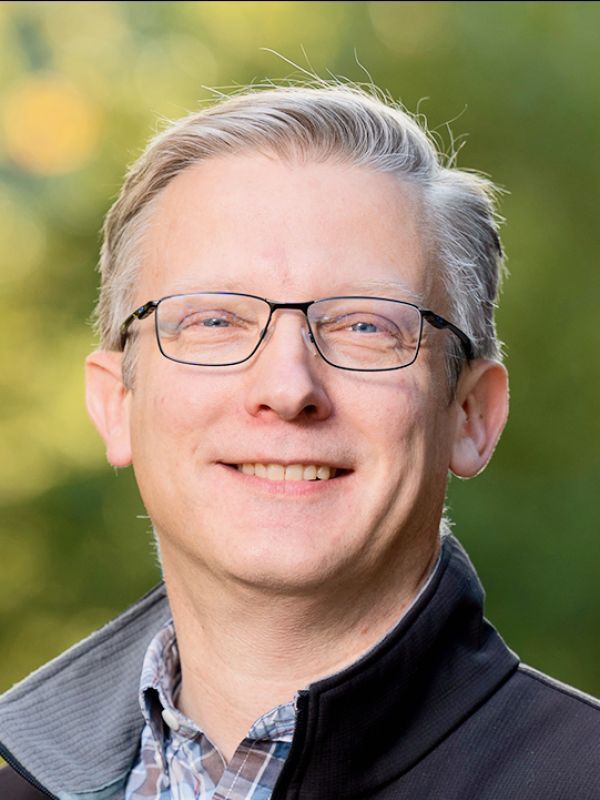
David Gillette
David Gillette, PT, DPT, GCS earned a bachelor of arts in history and a doctor of physical therapy (DPT) from University of Washington. In 2012, he completed a geriatric physical therapy residency at University of Minnesota. He is a certified Geriatric Clinical Specialist.
Before pursuing a career in physical therapy, he served in the U.S. Navy. During his time in the Navy he was stationed in Orlando, Florida, Idaho Falls, Idaho and Norfolk, Virginia. Prior to earning his DPT he worked for five years at the Fred Hutchinson Cancer Research Center in Seattle.
Dr. Gillette is a member of the American Physical Therapy Association (APTA) and is actively involved in the orthopaedics and education sections, as well as the Academy of Geriatric Physical Therapy. Since 2014, he has been an APTA credentialed clinical instructor.
In his role as a faculty member, Dr. Gillette's goal is to help students become outstanding physical therapists and exemplary professionals. He is pursuing his research interests in geriatrics and education.
He and his wife have two sons. Together they enjoy hiking, fishing and participating in Cub Scout activities as a family. Dr. Gillette is also an avid photographer.
BA in History, University of Washington, 2001
DPT, University of Washington, 2009
Residency in Geriatric Physical Therapy, University of Minnesota, 2012
When I taught radiation safety to professionals, I intuitively applied Bloom’s taxonomy, albeit roughly. In the decades since, I’ve learned and grown in my understanding of cognitive, psychomotor, and affective learning. My courses involve each of these to varying degrees and depth based on the course content and where the course is in the sequence of the curriculum. I've learned from professors and clinical instructors that there are many ways to facilitate learning. One could ask questions to elicit critical thinking and application, as well as encouraging questions from the student. These questions generally do not exist in a vacuum, but rather are saturated in dialog between the student and teacher. For students who are struggling, sometimes teaching involves encouragement or exhortation while taking into account the students' preferred learning styles. To challenge critical thinking and clinical reasoning, not only is experience vital, but also the encouragement of reflection.
I value moving from sage to guide during their two years in the program, evidence-based practice both in my teaching as well as of my teaching, a growth mindset for students and myself, and being student-centered through that. I believe teaching not just facts or techniques, but also why it is important and how to apply it with increasing complexity. I believe not just teaching knowledge or techniques, but also professionalism – I strive to model lifelong learning, flexibility, a growth mindset, and empathy. As a teacher, I seek feedback from my students as they provide valuable insight into my role as a teacher and as a physical therapist. I've been able to use this to improve professionally, pedagogically, and personally.
I have several goals for my students. First, I want them to put the patient first. Second, I want the student and patient to be safe. Third, I want the student to understand the information provided and demonstrate competency. My ultimate goal is that I want my students to think critically and clinically. I don’t want them to just want the answer to a problem such as follow a certain protocol of a certain injury or diagnosis, but be able to think through if the protocol is appropriate and why, and how to apply or modify/adapt it.
"Education: I'm interested in various aspects of student learning including the development of empathy during the curriculum, as well as the use of technology in the classroom. "
"Geriatrics: I'm interested in falls and balance interventions, and the use of technology while working with older adults in the clinic and in the community."
"Adherence: I'm interested in how to encourage patients to stick with or perform exercises and how to encourage the community to exercise as a part of their daily lives."
Research Interests:
- Balance and falls interventions
- Technology in the classroom, clinic and community
- Adherence to exercise


